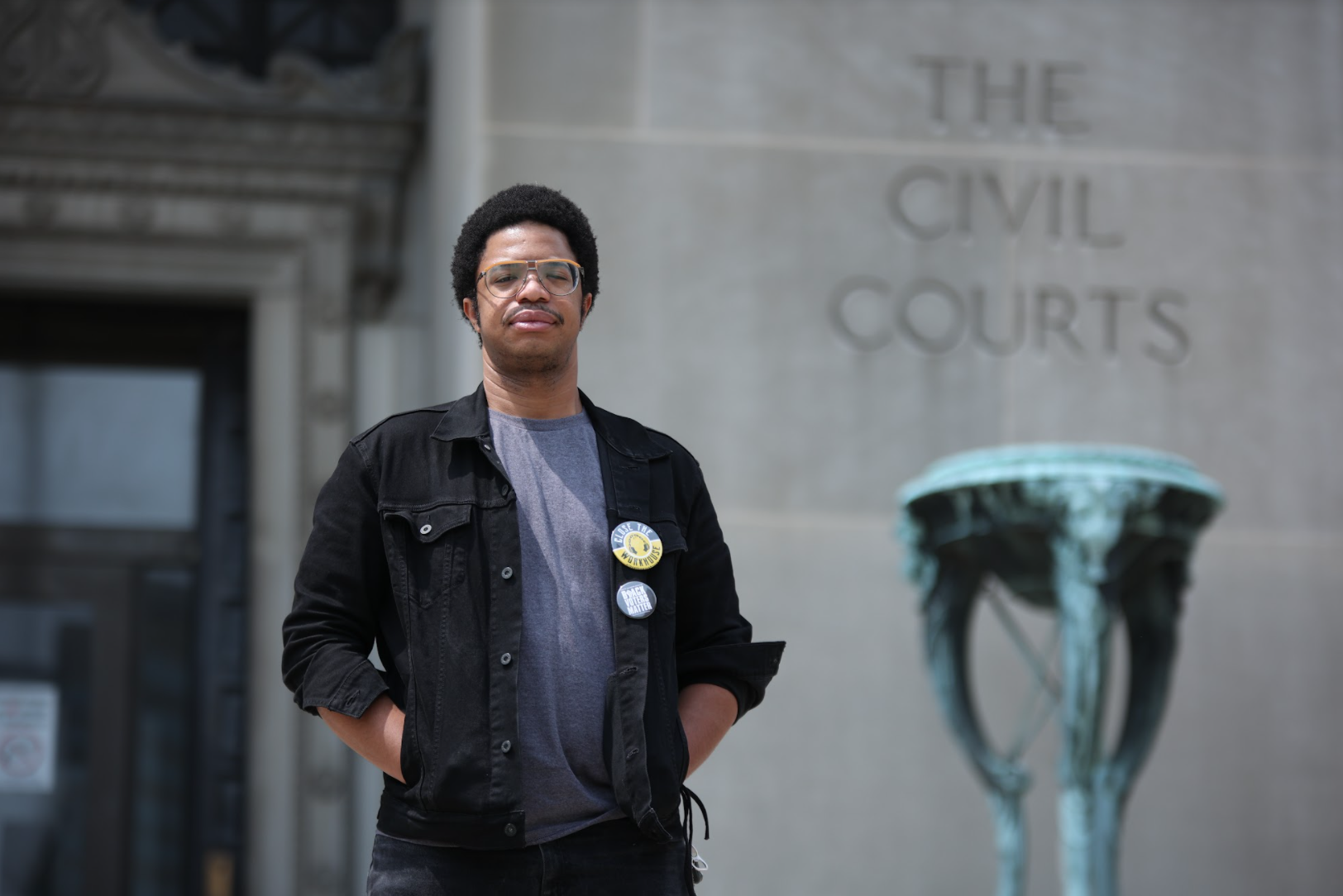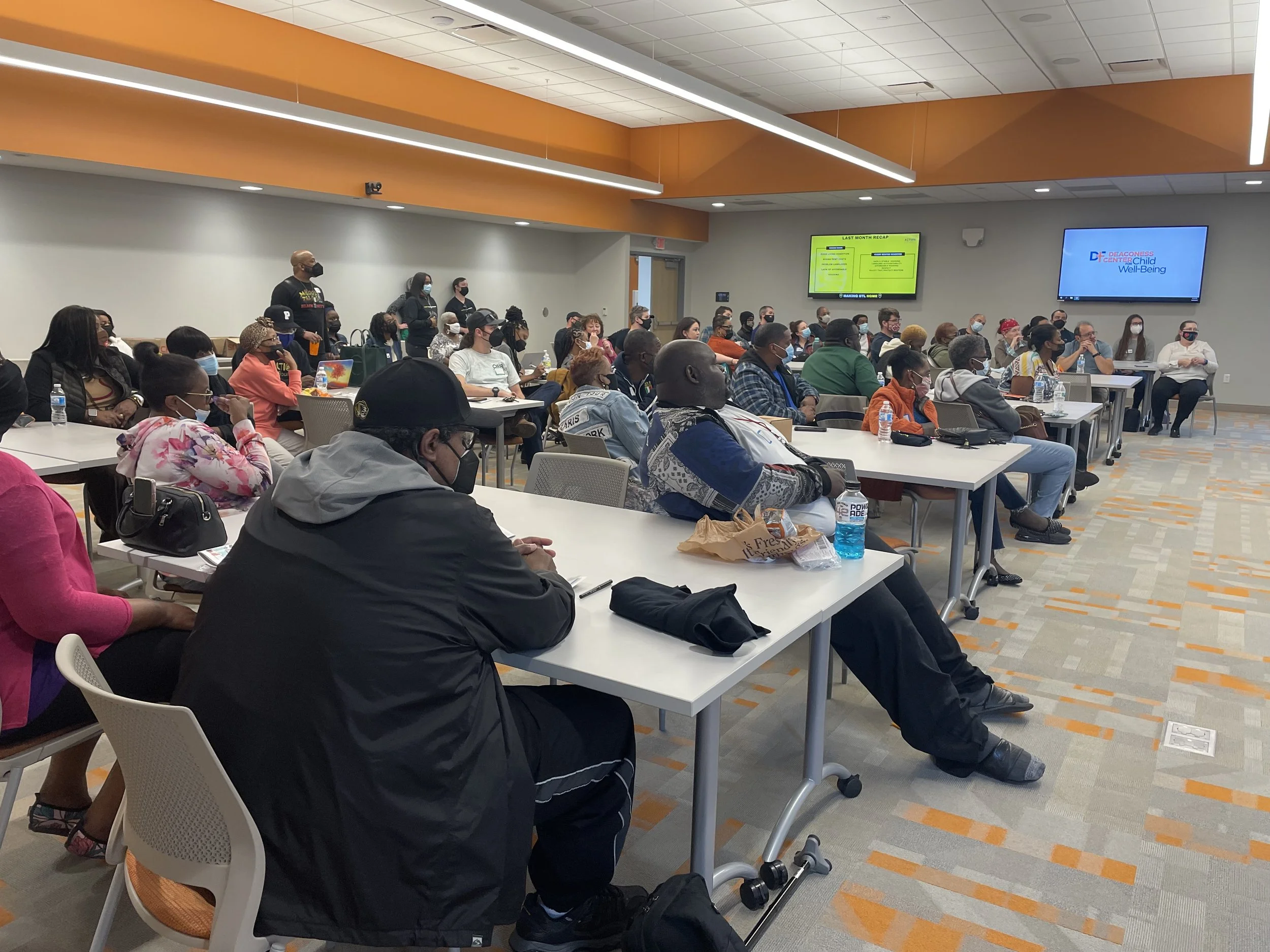The State of Housing in St. Louis with Kennard Williams and Milkayla Allen
This week, Communications Coordinator, Milkayla, sat down with our Organizing Manager and Housing Advocate, Kennard Williams. Born on the Westside of St. Louis, this is the City that raised him. He’s committed to the work of transforming the state of housing in St. Louis so that every renter can thrive in the place that we call home.
Kennard Williams, Organizing Manager at Action St. Louis
MA: Thanks for joining me today! So, let’s get right into it. You’re from St. Louis - how did you get to be a housing organizer?
KW: When the pandemic started, organizing was really just a response to the housing instability that came with it. We know renters are losing their jobs in a pandemic, and rent is coming. The sheer number of people who were on the verge of losing their homes, spurred me into action. It led me to reach out to other folks who I knew of doing housing organizing in St. Louis, and the St. Louis Housing Defense Collective was born. The first campaign we launched was to extend the eviction moratorium in the City. Not long after this, I started working at Action.
MA: Wow - so, for you and I'm sure many others, the pandemic was the catalyst, and you instantly made that connection around housing. What is your connection to this fight?
KW: I grew up in St. Louis. I was born here, and as a kid my family would move house to house. Having been evicted before, living in a place that’s not up to code, you’ve got to deal with bad conditions. The end result is tenants being misplaced. Dealing with housing insecurity growing up, that always ignited a light within me to fight against slumlords. I saw clearly the power dynamic between renters and landlords greatly skewed in their favor.
MA: Thank you for sharing that with me. So you talk to renters from all over the City in doing this work, what are some of the issues they face? What are renters up against?
KW: Renters in St. Louis is up against a whole lot. Starting with the court system and how perilous it is for renters to be able to stay in their homes and weather the eviction process. The court process in itself is loaded against the renter every step of the way. To even get through that, you need to have legal representation. We know that the majority of people who go through eviction proceedings without a lawyer do not end up with a favorable outcome.
MA: Right, and we talked about that last week at our staff political education session. Landlords bank on the lack of legal support so they can bully their way through the system.
KW: Exactly. Then there’s the landscape of who owns the properties, and the fact that they don’t properly maintain them. Renters deal with a bundle of issues as a result of that. And health conditions too.
MA: Right. When you’re dealing with leaking facilities, mold, all of that affects your health.
KW: Yeah. Then, there’s another part of it. You get evicted and now the only landlords that are available are slumlords that don’t have places up to code. They try to take advantage of renters in this situation because when you have an eviction on your record, you don’t have many options. Then there is the process of getting a new place to live while we have a shortage of rental housing for people in St. Louis.
Monthly Renters Meeting at Deaconess Foundation
MA: What do you mean - there are less properties available for rent?
KW: So, we’re seeing multi-family properties be turned into single family homes in areas that previously had plenty of duplexes, four families, six families even. We’re seeing neighborhoods get gentrified, and when that happens the amount of rental housing gets consolidated and the costs of those spots go up. It’s a very concentrated effort, and I think another piece around the eviction crisis to focus on is that it’s basically a new way of redlining.
MA: Ahhh. So you’re saying they’re shaping neighborhoods by keeping affordable housing out of reach. Do you think we’re seeing it even more now because of the eviction crisis?
KW: Definitely. We’ve seen neighborhoods flip - the Grove, for example. The population that’s currently in the Grove does not look anything like it did 15 years ago. When you start seeing the people who lived in those neighborhoods slowly disappear while the rent rises, it’s an added bonus for landlords, property managers and investors to get the populations who are already in those neighborhoods, out.
MA: That makes sense. So, really renters are up against decades worth of housing discrimination. That has to ignite some real rage in the folks you talk to. What are some of the demands you’re hearing from renters? What do you believe every renter deserves?
KW: I hosted our Renters’ Town Hall last month with Arch City Defenders and when people were reflecting on what renters deserve, they weren’t shouting out any lofty demands. They’re asking for basic respect, resources, legal support and protection from harassment by their landlords. People are hungry for more advocacy and protections for tenants in St. Louis.
One person said, “the only time you see investment is when we’re moving out.” So they don’t see any resources to their communities until people have been displaced out of the neighborhoods they’ve lived in their whole life.
MA: That can be really discouraging for renters to see. So, how do we disrupt this system? Why is building a renters movement important to you?
KW: This is important to me because I spend all of my time outside of meetings talking to renters. They share their stories with me. Listening to them motivates me every single day to keep this work growing and moving forward. This work is important to Action in particular because when we talk about struggling to access and secure housing in the City, the population is mainly Black folks. Then, we talk about navigating a legal system and process where Black folks are already heavily impacted by these same legal systems through the carceral state. We have an opportunity to transform the state of housing in this city, our home.
Community Canvass
MA: And what’s possible when we do?
KW: The sky's the limit. What’s possible is people getting the resources they need, the representation they need. Ample housing available for people that is safe, without worry that a ceiling may cave in on you or any number of other issues. What’s possible is fixing the issues that we have around our unhoused community not getting the resources they need. All of this is possible if we make the right investment.
MA: Absolutely. Thank you so much for sharing all of that with me today. One last thing - how can renters get involved with this movement we’re building?
KW: Folks can get involved by attending our renters’ meeting on the last Tuesday of every month at 6PM. At the meetings, we discuss the issues folks facing and how to build power for renters in St. Louis.



